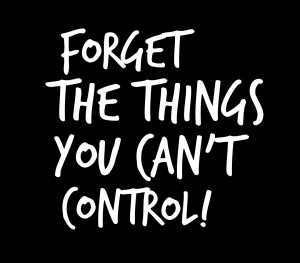Success in the musical theatre actually has less to do with music than you might think. It’s not even required that you be a great singer. Harvey Fierstein, Elaine Stritch and Rex Harrison are notable examples. What they have in common, besides the fact they would never get past the first audition for “The Voice” is, they’re very good actors. The beauty of their tone isn’t enough to win our hearts but they succeed with their ability to communicate and the strength of their personality.
Though acting ability is paramount, a good singing voice rules the number two spot for what you need to succeed as a musical theatre performer. The roles you can play without serious singing chops are few. The goal of combining great acting with great singing is the reason I fell in love with this craft. For me, there was no greater goal and I worked very hard for many years in pursuit of it.
Once you have both barrels (acting and singing) blazing, there’s one more thing between you and booking the job – the audition. Its unique demands offer challenges many actors don’t anticipate or know how to navigate. Many talented and well-trained graduates of MFA programs seek me out because they have difficulty getting cast in the ‘real world.” An audition is an unnatural situation that requires a different approach than the work you do in an acting class. It’s a special skill. Learning how to audition well is the secret to success in the musical theatre.
Here are 10 things to help you at your next musical theatre audition…
1. Choose songs appropriate to your skill level. An audition is not a good time to “hope” you hit the high note. Songs should also match your age and type.
2. Your songs should reflect the way you think and allow the qualities that make people know and like you to take stage. Read that again. You are the singer of the song. The song is you. You’re not pretending to be someone else. It’s you!
3. Don’t be caught by surprise. Your book should contain at least a pop song, a rock-and-roll, a contemporary musical-theater song and a classic musical theatre song. Of these, one should make them laugh and one should be a ballad. Learning a new song for an audition is very stressful and rarely works in your favor.
4. Control the things you can: You’re warmed up, stretched out and ready to rock, you left plenty of time to get there, you know exactly who you are when you walk in the room, your music is clean, well-marked and in a binder so it doesn’t fall off the piano, You know all the right things to say to your accompanist so they play exceptionally well for you, you look great, you’re well rested, you’ve eaten real food that day, etc. I could go on but you get the idea.
5. Forget the things you can’t control: You can’t control who gets the job, the other people auditioning in the waiting room or the person auditioning right before you (don’t listen). Auditions are like yoga or golf. You can’t win at yoga and you don’t play against the other golfers. You play against yourself to better your best score.
6. If they’ve given you sides or new songs to learn be very familiar with them and bring your ideas to the table. Leave room for them to give you direction and incorporate their adjustments into what you’re doing. You don’t need to be memorized at the initial audition but as you progress in the callback process you should be.
7. Make strong positive choices in your work. Go for the love. The folks behind the table are people and they respond to genuinely positive energy. Making strong, positive choices in your work makes you much more attractive. Many people think of Les Miserables’ Inspector Javert as the villain of the piece but a closer reading of the text reveals a devoutly religious man doing a difficult job (he’s a cop) in a dangerous world. His motives are pure even if his methods go awry. He doesn’t start out thinking of himself as a bad guy. Approaching him from love yields a more layered and effective performance.
8. Relax. Treat your audition like you’ve booked the job already, you’re in rehearsal and you’re there to simply do your best work and collaborate with the people in the room. This allows you to focus on your work and frees you from feeling the need to please.
9. Let them get to know you through the work you present. It’s vitally important that you’re actively trying to get something you desperately need from someone you care deeply about (whether love or hate). Having a personal point of view about everything you do and say makes you someone we want to watch.
10. Confidence is powerful. It is rooted in a belief in yourself. You must know you have the right to own the space you stand in and that you deserve to be in the room vying for the opportunity to land this role in front of these auditors. If you are literally standing in the room then you are, in actual fact, a contender! Why not take your best shot? Confidence is the direct result of physical, vocal and mental preparation.
If you’d like to learn more about how to increase your callback ratio and book more jobs by crafting attention-getting auditions CLICK HERE for information about my audition coaching in New York City and on skype. Until then, kick butt at your next audition!
[feature_box style=”8″ only_advanced=”There%20are%20no%20title%20options%20for%20the%20choosen%20style” content_font_size=”20″ alignment=”center”]
Sign up HERE to have my singing, acting & audition tips sent directly to your inbox! To say thanks I’ll send you my guide “How to Choose an Audition Song!”
[/feature_box]
All my best,
Philip
.
Philip Hernandez is a respected acting teacher and singing coach in NYC. He is also the only actor in Broadway history to play both Jean Valjean and Inspector Javert in Les Miserables. He created principal roles in Broadway’s Kiss of the Spiderwoman and Paul Simon’s The Capeman. You may also know him from his many television appearances: The Blacklist, Gotham, Blue Bloods, The Path, Bull, Nurse Jackie, Elementary, Person of Interest, Law and Order, Hostages and Damages to name a few. For information about acting lessons CLICK HERE or singing lessons CLICK HERE.
Follow him on twitter @philip24601, on Instagram @philip24601 and on Facebook at @philip24601.